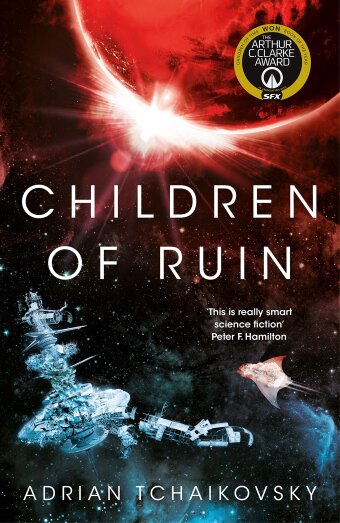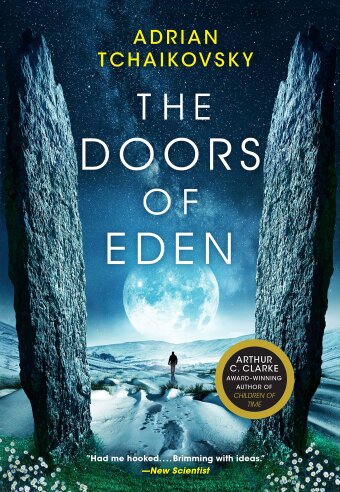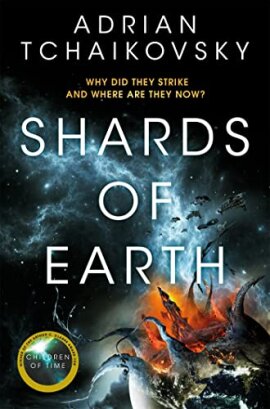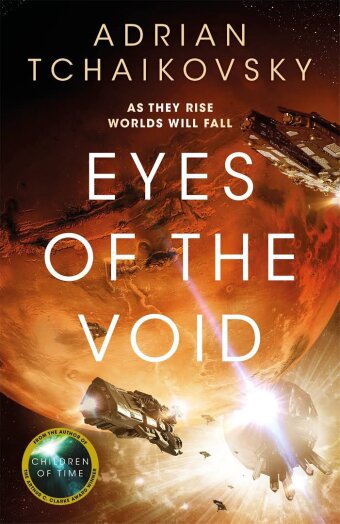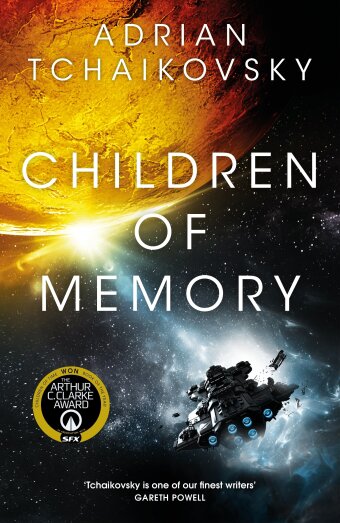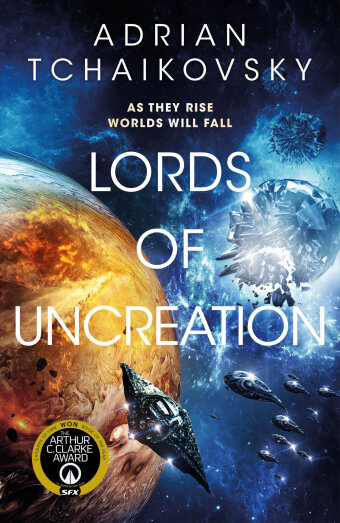I’m so glad that I finally got around to reading this. I was waiting for the audiobook to start, and I have to admit that it was worth the wait. The audiobook execution was on point and a real treat to listen too.
Okay, let’s dive into the actual review, shall we?
World-building
Children of Time has a LOT of world-building, required to fill out the epic backdrop for the story. There’s 2 distinct layers to the world-building.
Firstly there’s the history of the human species, which we see evolve (and devolve) over the span of centuries. It’s an interesting take on the human condition and our destructive tendencies and what the concequences of our nature could be. This is mostly created in broad strokes with very little factual details on the how and who, focusing mainly on the why and the end result, and this totally works. The story would have completely bogged down if this was done differently.
On the other hand, there’s the newly terraformed planet, that remains unnamed, and which is home to the giant spiders that make up the other half of the story. Throughout the story, we see the these creatures evolve from the tiny, basic insects that we know, to an expanding, bio-engineered community with its own social rules and religion. The parallels that we can draw between their evolution and mankinds own are quite interesting and sometimes hillarious.
This was truly very well done and very immersive.
Characters
In Children of Time, we have a 2 major factions of characters. On the human side of things, we follow Avrana Kern and Mason Holsten (and a little of Karst towards the end). Both of these feel very real and I found that I could easily step into their shoes and imagine what’s going on in their mind. Very interesting character arcs, for both of them.
Children of Time deals with a story that spans out over millennia. The author has chosen to show this timespan through the eyes of the humans, by having them spend long times in hibernation / statis, interspersed with short episodes where they’re awake and stuff happens. On the “alien” species front, we experience this passage of time by following a different character everytime time makes a significant shift. However, as a cherry on top, the author uses the same 3 - 4 names to define these individuals, and even though the social position of the characters changes everytime, the main defining traits stick around. We’re constantly following a descendant from the character from previous chapters, using the name from that previous character, which sounds quite complicated, but actually makes it a lot easier to step into the new POV’s shoes.
Writing
Although not overly embellished, I did really enjoy the writing. It was witty, fluid and pleasant to read. The voice of Mason Holden has a serious sarcastic undertone, and it got a few chuckles out of me. I never felt lost and the pages seemed to fly by.
Plot / Story
I like this plot. It uses the basic premise of “mankind has fucked itself and the planet over and is now in dire need of a new home” and joins that to “mankind has created new life but it’s not what they expected” and the conflict that ensues when that new life just happens to occur on the only liveable alternative to our dying earth in the vicinity. Bingo, conflict ensues and we have the main engine for the plot.
The rest of the story is largely based on philosophical questions on life, social dependencies, social development, isolation and individualism vs the greater good. Very interesting stuff, directly applied to our characters / society instead of dry thought exercises.
Conclusion
Due to the immense timespan that this book covers, I can help but feel the “epicness” of the story. The desperation of the human survivors in their search for a new home, is palpable throughout the entire story. The alienness of the spider society felt both alien and familiar at the same time. I’ve got nothing but love and praise for this story and it has conquered a spot on my fav list.
Easily 5 stars.
